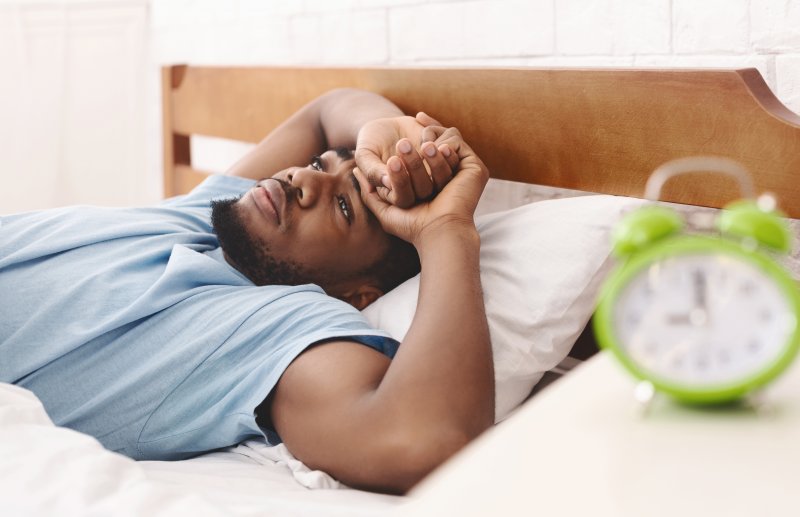
Once you realize that you’re living with sleep apnea, the impact it has on your life becomes very apparent. Your partner might be getting increasingly annoyed with your loud snoring, or you may notice that you constantly feel sleepy no matter how early you get to bed. But can you expect these symptoms to get better over time? Or will you need a professional’s help to rest peacefully again? Read on to learn more about the underlying causes of sleep apnea – as well as the potential for it to go away.
What Causes Sleep Apnea?
The most common form of sleep apnea is obstructive sleep apnea. It occurs whenever part of the airway collapses or is blocked. Common causes for this form of sleep apnea include:
- A floppy soft palate (the soft tissue behind your teeth)
- A deviated nasal septum (displaced cartilage and bone making one nasal passage larger than the other)
- Overly developed tonsils or adenoids
- A large tongue
- Having a large neck and naturally narrow airways
- Obesity creating fatty tissue around the air passage
- Use of alcohol (which relaxes the muscles)
Will Sleep Apnea Ever Go Away on Its Own?
It depends on the exact nature of your disorder, but generally speaking sleep apnea will not get better without professional help. In many cases, it’s linked to your anatomy, which tends to remain fixed after you reach adulthood. Children can often outgrow the condition, but the constant interruptions in breathing will still have a serious effect on their health in the meantime. Generally speaking, if you want to stop sleep apnea, you’ll need to take the initiative in treating it.
What Can Be Done to Treat Sleep Apnea?
Normally, sleep apnea treatment usually involves a combination of professional care and certain changes to your lifestyle at home. Traditionally, sleep doctors will prescribe CPAP therapy, which involves a special machine that continually forces air into your airway throughout the night. However, if you are CPAP intolerant, you can ask a sleep dentist about receiving an oral appliance instead. This simple device will shift the jaw in order to stretch certain muscles in the throat in order to keep the airway open. You can further relieve symptoms by:
- Losing weight if your disorder is linked to obesity
- Changing your sleeping position (on your side usually being ideal)
- Giving up alcohol, especially right before bed
- Practice certain breathing exercises to keep the muscles lining the airway toned
If you seek treatment quickly and pay attention to your health habits at home, you should be able to overcome sleep apnea with the help of your sleep doctor and dentist. If you think you’re suffering from a sleep disorder, don’t waste any time in scheduling an appointment!
About the Author
Dr. Torin Marracino is a member of the American Academy of Dental Sleep Medicine, meaning he can help Texarkana patients suffering from sleep disorders with customized oral appliances. He graduated from the University of Tennessee in 2005 with a Doctor of Dental Surgery. To learn more about the sleep apnea treatment he offers, visit his website or call (903) 838-9700.
